The days since the first presidential debate have not been good ones for Trump. His debate performance was panned. It was revealed that he lost nearly a billion dollars in business and probably paid no income taxes for two decades—thus calling into question his vaunted business acumen. More high-profile Republicans have voiced support for Hillary Clinton. And he spent much of the week reigniting a conflict with a former Miss Universe, prompting Hillary Clinton (and many other Americans) to wonder “What kind of man stays up all night to smear a woman with lies and conspiracy theories?”
So if you are Donald Trump and if you have succumbed to pressure from your aides to actually prepare for your second debate with Hillary Clinton, you are probably being forced to watch three pretty painful television clips: your own performance in the first debate, the resulting satire by Alec Baldwin on Saturday Night Live, and the performance of your vice presidential running mate Governor Mike Pence in his own debate. In the words of one Trump advisor, Mr. Pence “had all of the qualities and attributes that Trump has to show in the next debate: command of the issues, charm, and he has to defend his own policies.”
In fact, what Pence seemed to be doing in his debate against Tim Kaine the other night was eerily similar to what a large chunk of the Republican Party is doing—moving on, without Trump. Part of Pence’s debate strategy was that he didn’t try to defend the most outrageous things Trump has said and done—ignoring them or glossing right over them with an affable, if disingenuous, “There you go again” moment stolen straight out of Ronald Reagan’s 1980 debate against President Jimmy Carter. Pence’s performance did a lot to help Mike Pence and not much to help Donald Trump, a fact that puts him in sync with many of his Republican counterparts who have chosen to pretend that Trump is not at the top of their ticket.
After Trump’s poor performance in the first debate the number of high profile Republicans jumping ship continued to grow.
The latest were former Department of Homeland Security Secretary Michael Chertoff, and Michael Reagan, son of President Reagan. “Trump’s sense of loyalties are misplaced,” Chertoff told Eli Lake. “Some of our NATO allies sent troops overseas, at the same time he is defending Russia and trying to dismiss what is widely acknowledged to be Russian intrusions into the databases of our political parties and political figures.” And Michael Reagan stated he was “embarrassed by Trump,” when Trump trotted out Bill Clinton’s philandering.
Other Republicans have been less gentle in their rationales for abandoning Trump. Bob Gates, former Secretary of Defense and Director of the CIA under Bush called Trump “beyond repair… unqualified and unfit to be commander-in-chief.” GOP strategist Karl Rove called him “a complete idiot” and former New Hampshire Senator Gordon Humphrey called him “a sociopath, without a conscience or feelings of guilt, shame or remorse.”
While much has been made of the unpopularity of both presidential candidates this year, Trump’s unpopularity with other high profile Republicans reflects another reality that has been lurking under the surface all year long. By large margins, Americans don’t yet see him as presidential.
In a mid-September Washington Post poll, “ …62 percent of Americans say they don’t think Trump ‘is qualified to serve as president,’ while only 36 percent say he is ‘qualified.’” And in a very recent Washington Post poll, Clinton was rated higher than Trump on qualifications, temperament and knowledge of global affairs. Finally, a CNN poll conducted after the first debate found: “Clinton has widened her edge as the one with the right temperament for the job, topping Trump by 27 points on that score now, up from a 20 point lead in early September.”

The first debate was Trump’s best chance to appear presidential and he blew it. Going into the second debate there are probably many Republicans wishing that Mike Pence was at the top of the ticket. Trump now has two more chances to act presidential—the debate/town hall meeting on Sunday night and the final debate on October 19. And time is running out.
Elaine C. Kamarck is a Senior Fellow at the Brookings Institution and author of Primary Politics: Everything You Need to Know about How America Nominates Its Presidential Candidates. She is a superdelegate to the Democratic convention.
The Brookings Institution is committed to quality, independence, and impact.
We are supported by a diverse array of funders. In line with our values and policies, each Brookings publication represents the sole views of its author(s).

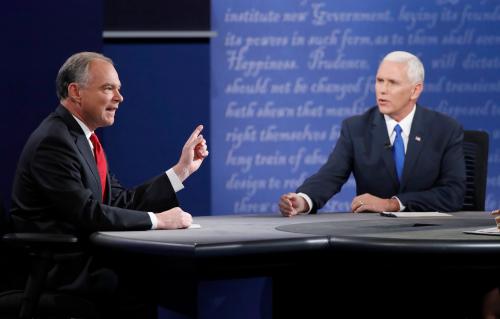
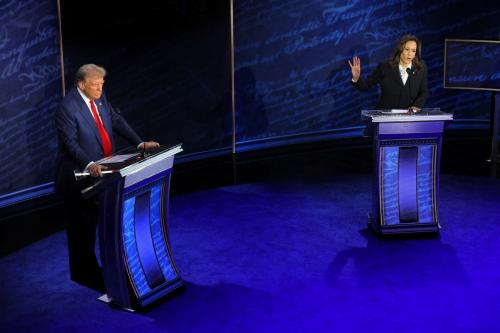
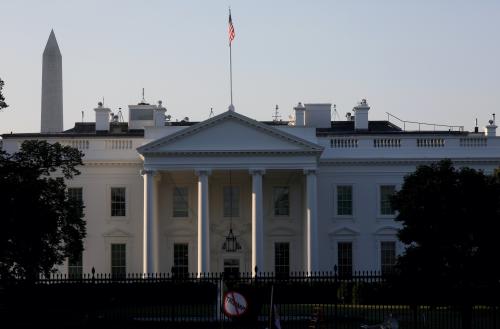
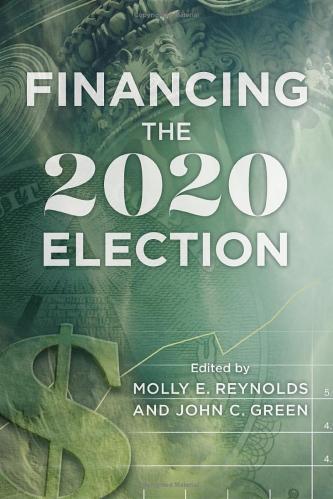
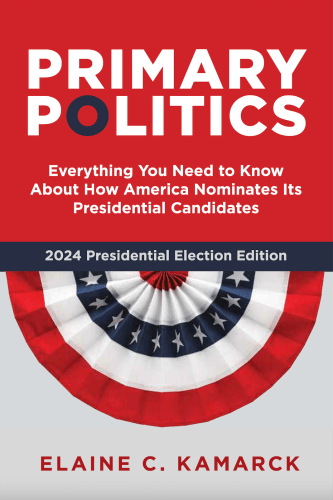
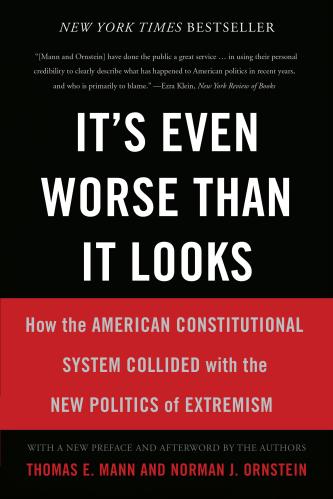



Commentary
Pence sets the bar high for Trump in the next presidential debate
October 7, 2016